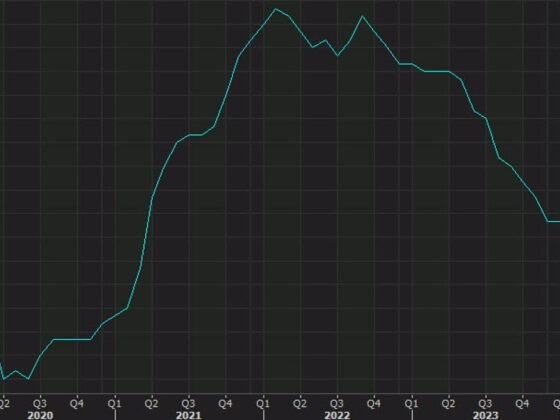Pound Sterling is on the lookout for positive momentum as geopolitical tensions ease, creating a favorable environment for risk-sensitive assets like GBP. Investors await cues on interest rates, with Bank of England (BoE) policymakers expressing concerns about high wage growth.
The GBP/USD pair remains in a tight range as traders anticipate inevitable rate cuts by the BoE. Meanwhile, the US Dollar Index drops to 103.70, reflecting weakening against major currencies.
Hopes of a ceasefire in the Israel-Palestine conflict boost risk sentiment, benefiting GBP, while safe-haven assets like USD face pressure. The upcoming US economic data, including Durable Goods Orders and the core Personal Consumption Expenditure price index, will influence the US Dollar’s direction.
Despite expectations of rate cuts by the BoE following the Federal Reserve, uncertainty lingers regarding the UK economic outlook. The Services PMI indicates a shallow technical recession, but robust order book and improved business optimism signal a potential recovery.
In consumer spending, Retail Sales show signs of improvement, suggesting a rebound in businesses’ operating capacity. Pound Sterling faces resistance near 1.2700, with technical analysis indicating a possible bullish momentum if the Relative Strength Index climbs above 60.00.
Pound Sterling FAQs
The pound sterling?
The UK’s national currency is the Pound Sterling (GBP), the oldest currency in the world (886 AD). According to 2022 statistics, it accounts for 12% of all FX transactions, averaging $630 billion a day, making it the fourth most traded unit.
FX dealers trade GBP/USD, known as ‘Cable’, 11%, GBP/JPY, dubbed the ‘Dragon’ (3%), and EUR/GBP (2%). The BoE issues the Pound Sterling.
What affects the Pound Sterling from Bank of England decisions?
Bank of England monetary policy is the biggest factor affecting the Pound Sterling. The BoE bases its judgments on whether it has achieved “price stability”—a 2% inflation rate. Interest rate adjustments are its main instrument.
The BoE raises interest rates to control inflation, making lending more costly for individuals and companies. Higher interest rates make the UK more appealing to foreign investors, which boosts GBP.
Low inflation indicates slower economic development. In this case, the BoE may decrease interest rates to encourage enterprises to borrow more for expansion initiatives.
How does economic data affect the Pound?
Data releases indicate economic health and affect the Pound Sterling. GDP, Manufacturing and Services PMIs, and employment affect the GBP.
A healthy economy helps Sterling. It attracts foreign investment and may persuade the BoE to raise interest rates, strengthening GBP. Otherwise, bad economic data may lower the Pound Sterling.
The Trade Balance affects the Pound.
The Trade Balance is another important Pound Sterling statistics release. This metric compares a country’s export earnings to its import costs over a certain time.
If a nation exports popular commodities, its currency will profit solely from overseas purchasers’ desire. A positive net Trade Balance enhances a currency, whereas a negative balance weakens it.










